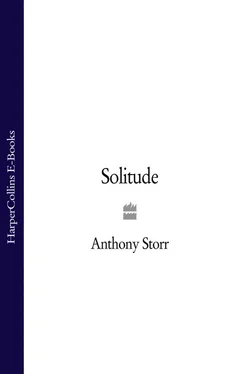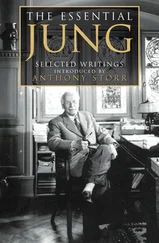the prison is an American invention, an invention of the Pennsylvania Quakers of the last decade of the eighteenth century … In their ‘penitentiary’ the Quakers planned to substitute the correctional specifics of isolation, repentance, and the uplifting effects of scriptural injunction and solitary Bible reading for the brutality and inutility of capital and corporal punishments. These three treatments – removal from corrupting peers, time for reflection and self-examination, the guidance of biblical precepts – would no doubt have been helpful to the reflective Quakers who devised the prison, but relatively few of them ever became prisoners. The suitability of these remedies for the great mass of those who subsequently found their way to the penitentiary is more questionable. 1
This is, of course, ironic understatement. Today, imprisonment is generally recognized as being worse than useless in the fight against crime. Its deterrent effect is dubious, its reforming effect negligible. Prisons reinforce a criminal subculture by herding offenders together. Long sentences, by separating criminals from their families, lead to the break-up of family ties. Since the availability of family and social support after release is one of the few factors known to make reconviction for further crimes less likely, protracted imprisonment actually increases the probability that subsequent offences will be committed. Availability of suitable employment after release is another factor which has been shown to diminish the chances of reconviction. But most societies are so unwilling to spend money on prisons that programmes for retraining prisoners or teaching them new industrial skills are quite inadequate.
In ordinary British prisons, solitary confinement is seldom used except as a comparatively brief punishment for serious violence. In France, at least until recently, solitary confinement was used during the initial part of life sentences, though tempered with some participation in group activities. Originally, isolation was supposed to encourage remorse and subsequent reform by forcing the convict to confront his own conscience. The single cells in which sentences were served were modelled upon those of the monastery. But prison authorities came to realize that isolation imposed considerable stress upon prisoners, and led to mental instability and unruly behaviour. Although association with other criminals carried the likelihood of reinforcing the choice of crime as a way of life, this disadvantage came to be considered the lesser of two evils. Long periods of isolation became recognized as cruel as well as ineffective.
Moreover, since the Second World War, prisons in Britain have become so permanently overcrowded that solitary meditation upon the evils of their crimes is no longer a practical possibility for prisoners, even if it were thought desirable. Today, cells designed for one prisoner have to be occupied by three. This contravenes the Standard Minimum Rules for the Treatment of Prisoners adopted by the United Nations Congress of 1955, which states that each prisoner shall occupy by night a cell or room by himself, except in conditions of temporary overcrowding.
In Denmark, a high proportion of detainees awaiting trial for criminal offences are kept in solitary confinement whilst their cases are being investigated. No other European country uses isolation in pre-trial detention to this extent, although there have been recent complaints of similar practices in Sweden. Periods of isolation vary from two weeks to four weeks or more; but several instances are known of detainees spending between one and two years in isolation.
Detainees spend twenty-three out of every twenty-four hours in a small cell. They are allowed two half-hour periods of exercise alone, but their solitude is otherwise interrupted only by visits to the lavatory and the delivery of meals. In spite of being allowed books, radio and television, letters, and, in some cases, supervised visits, even this degree of isolation often has deleterious effects upon mental functioning. Many detainees complain of restlessness, insomnia, inability to concentrate, and partial failure of memory. They find it difficult to measure the passage of time, and invent obsessional rituals to mark the hours and give structure to the day. When these rituals are interrupted by interrogation or by visits from a lawyer, they become intensely anxious. Self-mutilation and suicidal attempts are common. In 1980, seven out of ten successful suicides in prison were those of pre-trial detainees. If isolation is prolonged beyond a few weeks, many detainees complain of inexplicable fatigue. Some become almost totally apathetic; others lose control of their emotions to the point of believing that they are going mad. Even when removed from isolation, many symptoms persist. Detainees complain that they cannot remember what they read; that they cannot even follow a television programme. It is hardly surprising that some make inaccurate or contradictory statements to the police when being interrogated. After prolonged periods of isolation, many fear resuming social relationships and dare not risk intimacy. Such impairment of the ability to relate to others may persist for years. 2
If such dire mental sequelae follow short periods of isolation which, in other respects, are comparatively humane, it is not hard to imagine how much worse are the effects of solitary confinement by totalitarian regimes in which the most elementary human rights are disregarded. The paper by Lawrence Hinkle and Harold Wolff on the techniques of interrogation and indoctrination employed by Communist states has become a classic, and I have drawn heavily on their account. 3
The usual procedure is as follows. A person suspected of crimes against the State, that is, of being a political dissident, is placed under surveillance. So are his friends and associates. The suspect often becomes aware of this scrutiny, and suffers acute anxiety as a consequence. When sufficient ‘evidence’ has been accumulated, the state police proceed to arrest him. Anyone thus arrested is assumed to be guilty, although the crimes of which he is accused are never specified. The arrest usually takes place in the middle of the night. Prisoners whose cases are relatively unimportant may be confined in cells with other prisoners, who are often informers. But prisoners from whom information is required, or who are destined for public trial, are placed in solitary confinement. The cell is small. It usually has only one window which is placed above eye-level so that the prisoner can see nothing of the external world. But the door of the cell contains a peep-hole through which the prisoner can be observed at any time without his knowledge:
At all times except when he is eating, sleeping, exercising, or being interrogated, the prisoner is left strictly alone in his cell. He has nothing to do, nothing to read, and no one to talk to. Under the strictest regimen, he may have to stand or sit in his cell in a fixed position all day. He may sleep only at hours prescribed for sleep. Then he must go to bed promptly when told, and must lie in a fixed position upon his back with his hands outside the blanket. If he deviates from this position, the guard outside will awaken him and make him resume it. The light in his cell burns constantly. He must sleep with his face constantly toward it. 4
Usually, the temperature of the cell is too cold for comfort, although it may sometimes be overheated. The food provided is unpalatable, and hardly enough to maintain nutrition. The combination of partial starvation, deprivation of sleep, uncomfortable temperatures, and continuous, intense anxiety combine to undermine the resistance of all but the most robust of prisoners.
During the first three weeks of this regime, most prisoners become intensely anxious and restless. They are not allowed to talk to the guards, nor to have any contact with other prisoners. They are given no information about what is to happen to them, and no information about what may happen to their families and friends. Many prisoners find that uncertainty is the worst torment which they experience.
Читать дальше












